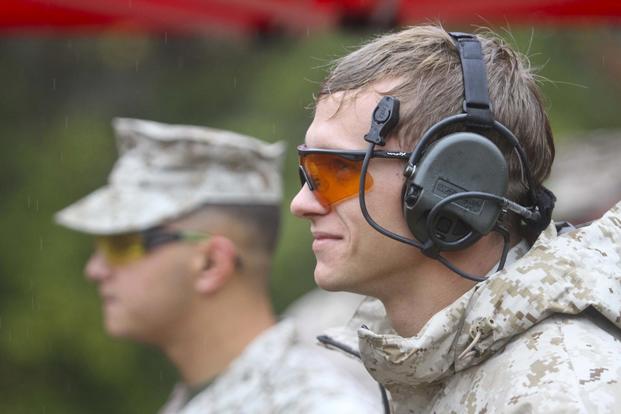Situational awareness is one of the most important things on the battlefield, but the devices meant to protect Marines' hearing can sometimes dull their senses, leaving some to ditch the protective gear altogether.
The Marine Corps wants to fix that, and will be ramping up tests this year for new headsets officials hope let Marines them hear what's going on around them while still protecting their hearing.
"The technology in that area has just really grown," said Nick Pierce, the individual-armor team lead with Marine Corps Systems Command. "...There are systems that do a much better job with what we call localization, which means that if you have a Marine with a headset on, it can enhance his hearing to where he actually hears some sounds better, but [it] also protects his hearing all at the same time."
Related reading:
- Marines Want New Headset That Will Amp Up Battlefield Sounds
- Corps Wants to Put Silencers on a Whole Infantry Battalion
- Tinnitus is Number One Disability For Veterans
That's what the Marine Corps called on industry leaders to develop last month when officials announced plans to buy up to 65,000 of the devices over the next three years. Last week, Pierce and other SYSCOM officials met with some companies executives that think they can make what the Marine Corps wants.
Some of the older technology allows for sound to come through the headsets, but can make it difficult for Marines to decipher the direction from which the sound is coming. In a combat situation, that can be a bad thing, Pierce said.
"We're going to do some testing before the end of the year, but it seems like some of these systems have really come up with some technology that makes that a lot better," Pierce said. "We're excited to test out some of those claims."
Hearing loss is one of the most common claims the Department of Veterans Affairs sees once troops leave the military. In 2014, nearly 1 million veterans received disability compensation for hearing loss and another 1.3 million for tinnitus, or ringing of the ears.
A lot of those claims could be the result of Marines choosing to wear nothing in lieu of sacrificing their situational awareness in combat, Pierce said.
"It's one of those choices where they want to hear those small sounds, they want to hear the commands from their fire-team leader," he said. "If we can give them a system where they keep that situational awareness of what's around them while still receiving communication from their fellow Marines, then they'll wear the systems and be protected. Whereas now, many of them aren't protected at all."
Marine officials met with 16 companies last week, many of which were presenting ideas for better hearing protection, Pierce said. In additional to improving situational awareness, he said they hope to eventually field headsets that are flexible and work with a wide range of radios.
Marines have been testing some of the new headsets in Ohio and Norway in order to assess how they perform in different climates. Tests will continue throughout the end of the year, and the Marine Corps could begin purchasing new headsets as early as next fall.
-- Gina Harkins can be reached at gina.harkins@military.com. Follow her on Twitter at @ginaaharkins.










